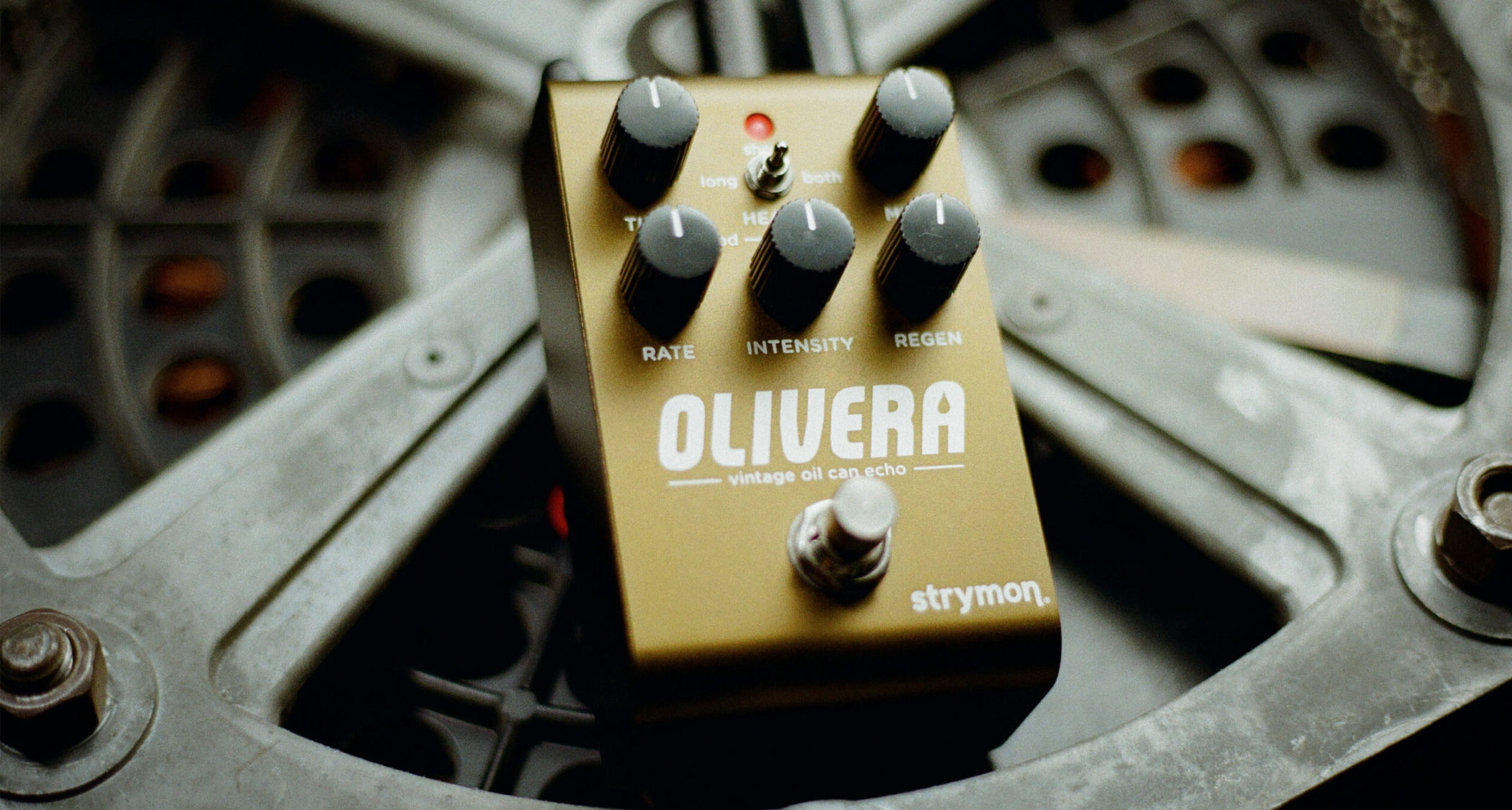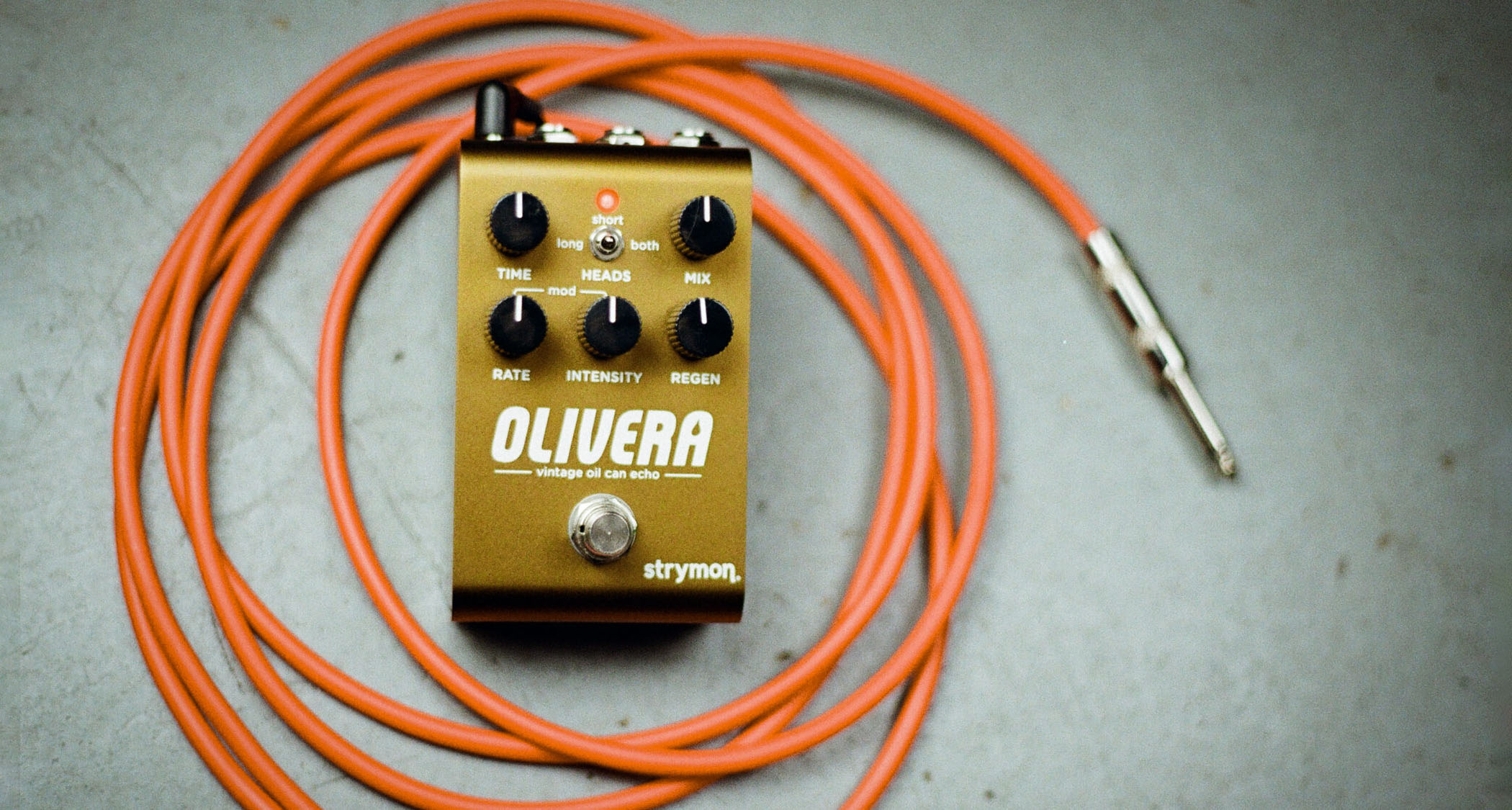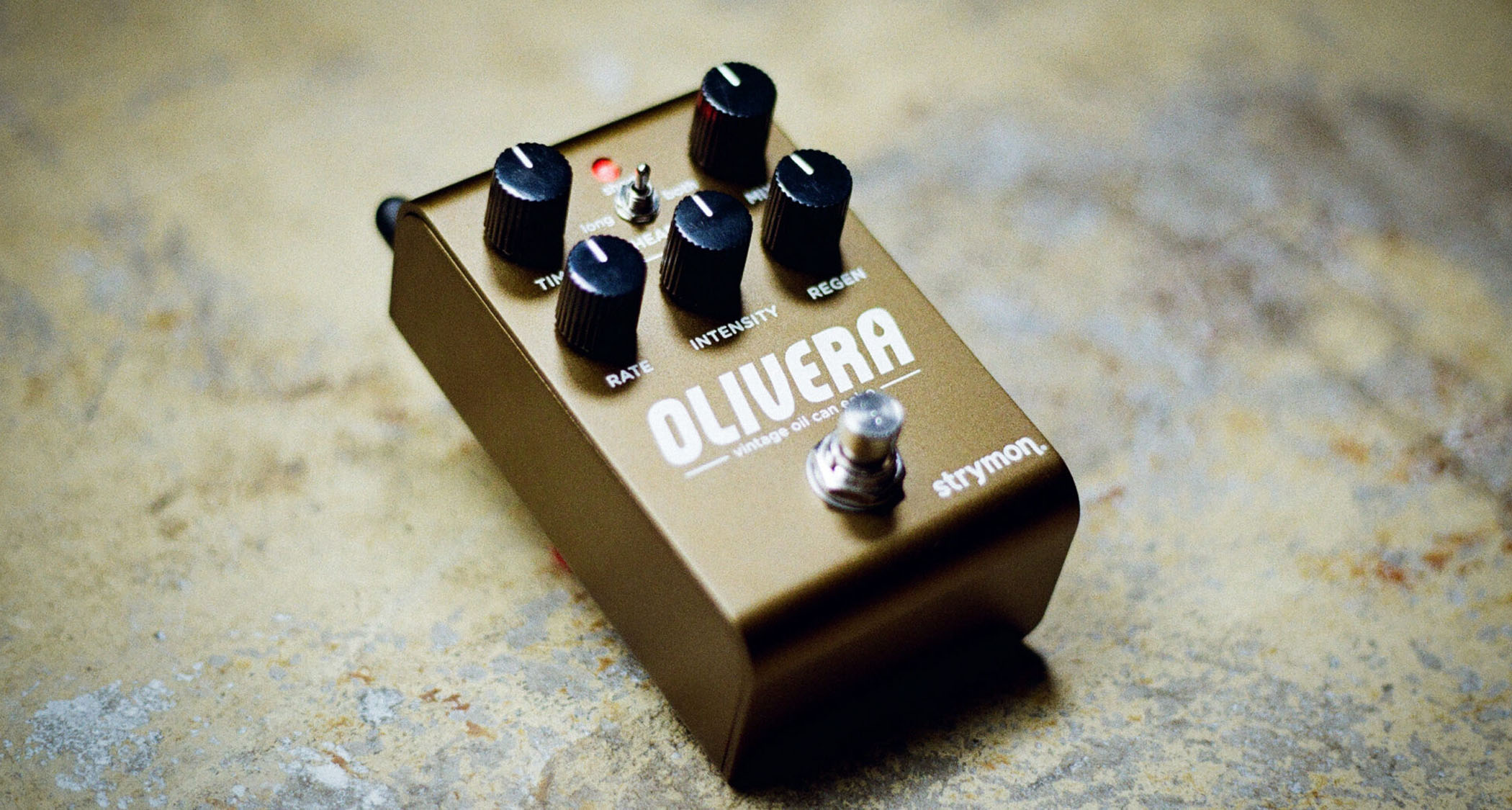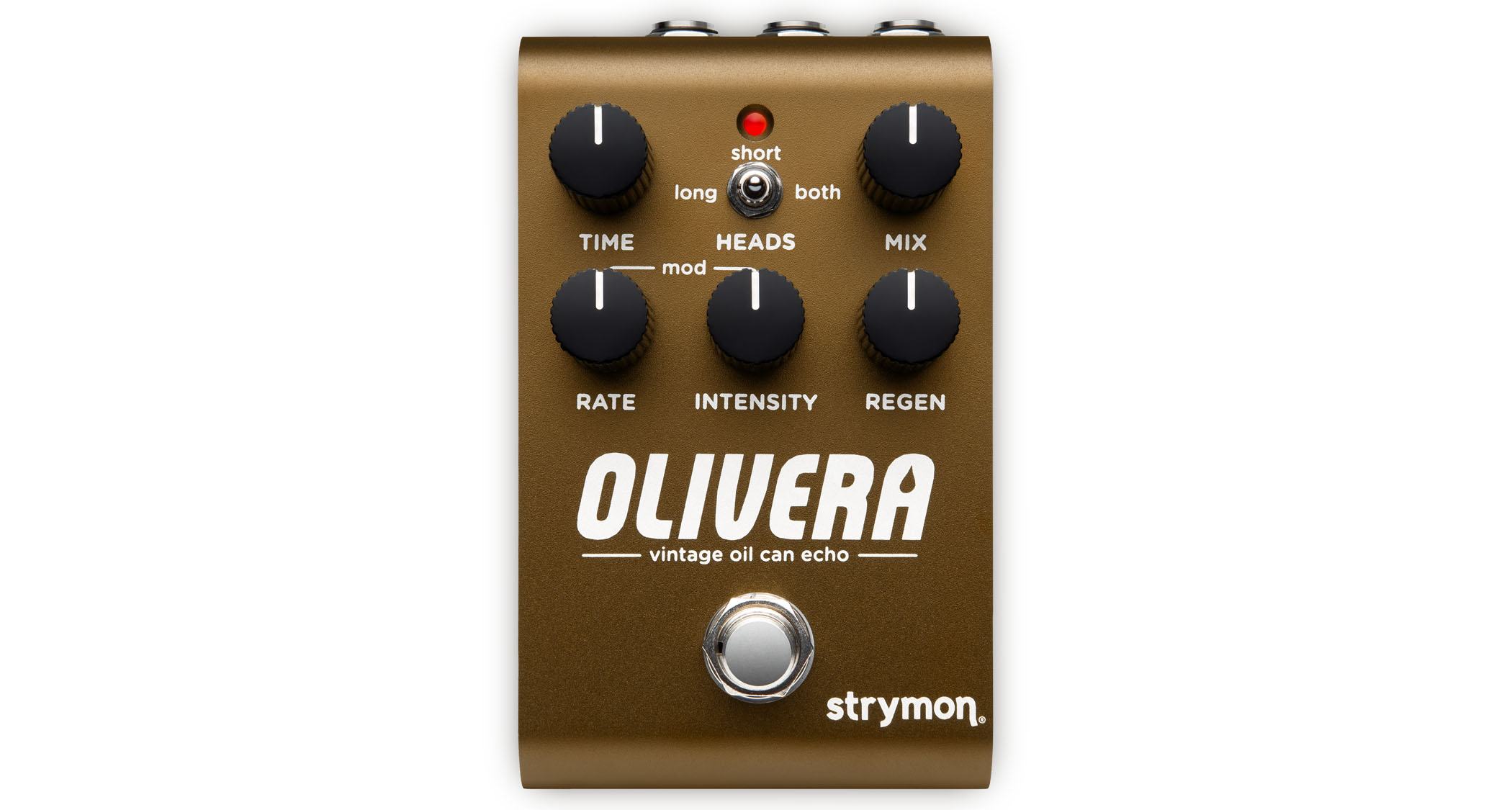“The first pedal emulation that truly captures the mechanical yet wildly organic nature of these oddball machines”: Strymon’s Olivera is a vintage oil can delay without the oil, without the mechanics, and with a lot more control over your tone
Vintage sounds from 21st-century tech, the Olivera has a powerful ARM processor under the hood, giving us 300 presets, stereo, MIDI, while a discreet Class A JEFT input preamp keeps things real

Strymon has expanded its lineup of delay pedals with the Olivera, a compact but feature-packed emulation of a vintage oil can echo unit that provides all that weird mojo of the original mechanical units, but, well, with modern conveniences and then some.
This being a Strymon production, the bus is being driven by state-of-the-art digital processing, with the Olivera’s ARC processor providing the brains and the muscle of a pedal that gives players up to 300 presets, full MIDI control, mono or stereo operation, and comprehensive control over shaping those repeats.
Oil can echo units were a strange thing. They had a rotating disk in a can that was filled with oil to charge the disk. “The resultant delay signal is very band limited, creating a murky sounding echo,” says Strymon. We might be able to attribute that murk to the inefficiency of its design or what have you, but that murk – darker, haunting repeats – has a musical quality that’s most unique, and it worked a treat with electric guitar.
But the design quirks of the oil can echo units – namely a record head, two playback heads and no erase – gave players some weird effects on the repeats that could couldn’t find elsewhere.
Just as tape echoes had their own thing going on as the tape degraded and the mechanics garbled it further, oil can units had some strange voodoo going on, too; the disk, and how it held onto its charge as the can rotates, meant there were ever-present repeats. The murk had texture, a personality of its own.
As you can imagine, this was not all that user-friendly, so a pedal such as this is a godsend. It’s almost an archeological project. After all, you can’t just go to the gear store and find an real mechanical oil can echo in the pedal cabinet. Even for Strymon, recreating the sounds of an oil can echo was not easy.
“This was a fun project to dig into and get right,” says Pete Celi, co-founder and DSP guru, Strymon. “The sheer number of organic variations and interactions makes recreating the behaviour of a device like this pretty daunting, but that makes it even more rewarding when it all comes together.
Want all the hottest music and gear news, reviews, deals, features and more, direct to your inbox? Sign up here.
“I imagine that many folks would say that these units are simply filtered and dark, but it goes way beyond that. The way that these systems record and play back the signal results in a really unique and magical ambience that doesn’t sound like anything else.”
You will find the Olivera there. It is a five-knob design, one of Strymon’s more compact pedals, and it has everything you would need. There are controls for Time, Rate and Intensity, the latter two adjusting the speed and depth of the modulation applied to the repeats, while Regen behaves like a feedback dial, giving you full-on oscillation when fully clockwise. Easy.



And, crucially, we have a Mix knob, too, allowing you to preserve as much – or as little – of your unprocessed electric guitar signal as you want. A three-way toggle switch selects the playback heads, one positioned short to the ‘record’ head, the other long, and you can select both for a “multi-tap” echo pattern.
You can set this up super-subtle; use it for a dark-sounding slapback. Or you can set it up to do something a little more exotic. It’ll pair nicely with an overdrive pedal.
The jacks are found on the top of the unit, where you will find a switch for mono/stereo operation, a USB connection for firmware updates and MIDI, and a multi-function 1/4” input for adding an expression pedal or a MIDI controller. Expect the useful bomb-proof Strymon build. There’s also a discrete Class A JFET stereo input preamp for “the ultimate in dynamics and feel” – and ultra-low noise operation.

The pedal takes a 9V DC pedalboard power supply and draws a minimum of 250mA. Priced £/$259, the Olivera Vintage Oil Can Echo is available now.
See Strymon for more details.
Jonathan Horsley has been writing about guitars and guitar culture since 2005, playing them since 1990, and regularly contributes to MusicRadar, Total Guitar and Guitar World. He uses Jazz III nylon picks, 10s during the week, 9s at the weekend, and shamefully still struggles with rhythm figure one of Van Halen’s Panama.
You must confirm your public display name before commenting
Please logout and then login again, you will then be prompted to enter your display name.

